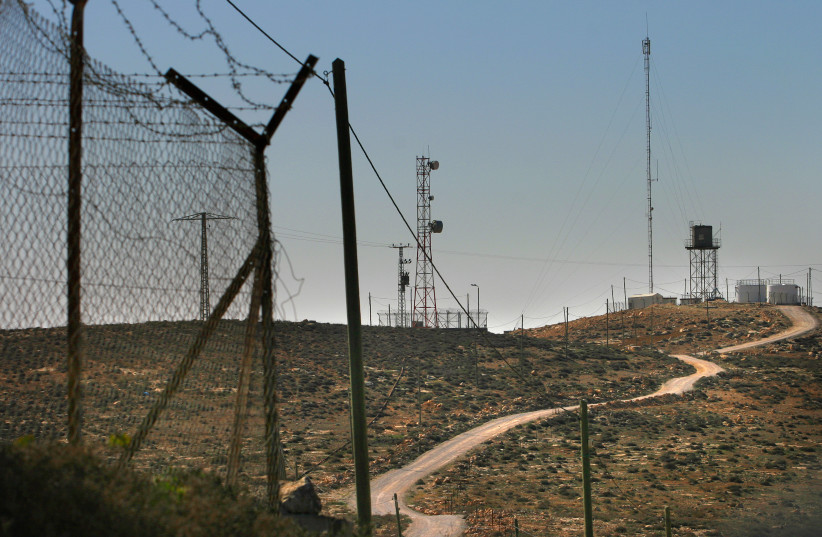Netanyahu signed his name on the pledge along with members from Likud, Shas, United Torah Judaism, the Religious Zionist Party and HaBayit HaYehudi.

In an appeal to right-wing voters, former prime minister Benjamin Netanyahu pledged to support massive housing construction in West Bank settlements if he regains his former leadership position.
Netanyahu signed his name, along with 30 members of his Likud Party, and another 26 politicians from Shas, United Torah Judaism, Religious Zionist Party and Bayit Yehudi to a declaration on intended settlement building by the Sovereignty Movement.
In a campaign titled “Moving Eastward,” the Sovereignty Movement is claiming that the best resolution to the housing crisis is to build in Judea and Samaria.
Those that signed the statement put their name to a text that said, “the distress in housing prices in the country’s center requires massive construction in the adjacent areas in Judea and Samaria.”
The declaration targeted in particular the route between Tel Aviv and the settlement of Ariel, located deep within the Samaria region.

“Construction of thousands of housing units on the Tel Aviv-Ariel thoroughfare will lead to a dramatic rise in the supply of land for construction and to a significant drop in housing prices,” the declaration stated.
Those who signed it pledged to use all parliamentary tools at their disposal to ensure that such construction takes place, particularly by changing regulations to ease the granting of settler building permits.
Netanyahu put his name on the document at a time when the Biden administration has sharpened its rhetoric against settlement building, with US Ambassador Tom Nides clarifying that Israel had been asked to constrain settlement activity.
Holding fast to that pledge would put him on a collision course with the US administration.
It would also sharpen the conflict on the issue with the European Union, which just resumed its annual EU-Israel Association Council meetings.
Netanyahu had a strong record on advancing settlement planning during the supportive Trump administration but struggled to hold his own on the matter against US president Barack Obama.
He agreed to a 10-month moratorium on breaking ground for new settler homes and periodic de-facto planning freezes. There were also periods during the Obama era when he surged forward with settler housing plans.
The US, the EU and the Palestinians have opposed settlement building, arguing that it prevents a two-state resolution to the conflict. Israel has argued that settlements have no connection to the peace process.
The Sovereignty Movement intends to publish a more detailed study in the near future claiming that 75,000 homes could be constructed there in the next five years.
The movement, led by Yehudit Katsover and Nadia Matar, has focused in particular in the areas over the pre-1967 lines between Hadera and Gedera, explaining that this is where many citizens want to live.
How will this plan affect housing prices?
Building there will also drop housing prices within the Green Line by 20% once the 75,000 homes are on the market, Matar said.
The Yesha Council in the past has also argued that settlement construction is the best answer to the lack of affordable housing.
Katsover and Matar said that, “today, the population density in Israel is one of the highest among countries in the developed world.
“By 2040, Israel’s population is projected to grow to almost 13 million people. In Tel Aviv alone, the density is 7,841 residents per sq. km., a density significantly greater than the density in the Gaza Strip, which is 6,859 residents per sq. km.”
Meretz head Zehava Galon said in response, “Solving the housing problem in Israel by building outside of Israel is like robbing a bank in order to close your deficit in that same bank.
“But Bibi will do anything to win votes to get him out of prison,” she added.
Content retrieved from: https://www.jpost.com/israel-news/politics-and-diplomacy/article-718898.